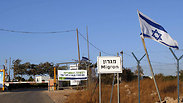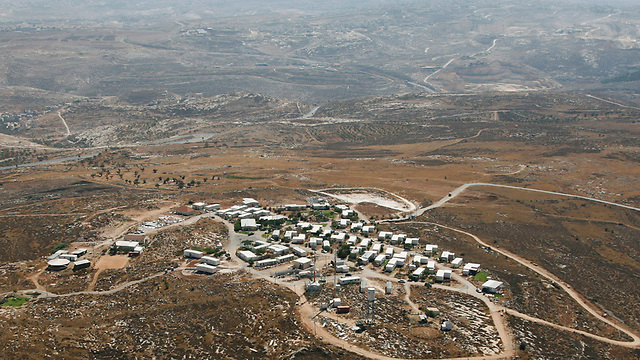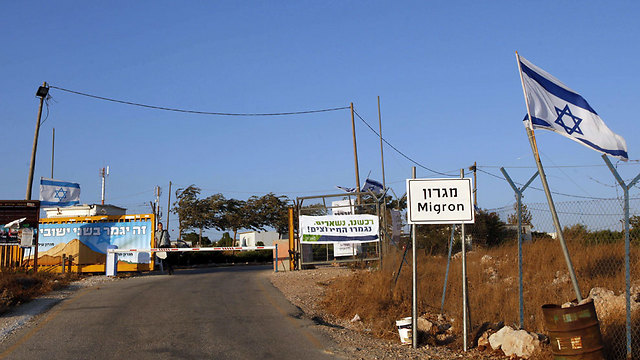
Migron
צילום: AFP
Three Israelis convicted for violence against Arab farmers
Despite convictions, judge rejects racial motivation behind 2014 attacks, identifies contradictions in plaintiffs' version of events, notes their past convictions for violence and highlights unauthorized presence at the scene.
Two Israeli men and a minor were convicted Thursday morning for attacking Palestinians farmers with wooden sticks and metal bars in 2014 near the Migron outpost in the West Bank.
While the judge rejected claims presented by the prosecution that the defendants launched their assault on their victims purely because they were Arabs, the indictment states that Yosef Weinberger and Eliran Landau assaulted and injured the Palestinian farmers under aggravated circumstances.
“Regarding the prosecution’s position that the racist perceptions of the defendants is expressed by their conclusion the Arabs’ presence means they are dangerous and are coming to attack, and therefore they must be attacked beforehand—I don’t accept this,” wrote the judge following the conviction at the Jerusalem District Court.
The incident took place in territory which is partially toiled by Palestinian Arabs who require special permission and to be escorted by a military security detail. The upper half of the land is settled by Israeli residents.
In March 2014 Yousef Abu Ali, Omer al-Hajj, Ahmed Sayem and Nasif Abdul Ja’abar began working an olive grove on the land without the required coordination under the Migron outpost.
According to the indictment, the convicts approached the three Arabs, began throwing stones at them, cursed them and proceeded to strike them with sticks and bars.
The defendants claimed however that they only made their way to the area to “show their presence” after receiving messages that Arabs were assaulting Jews in the area and were approaching the Jewish-populated areas.
They also claimed that the plaintiffs were the people responsible for attacking and throwing stones at other people in the outpost and that any wounds they may have sustained in the ensuing skirmish could be attributed to self defense.
Nevertheless, the judges determined that the version of events by the complainants was not without its contradictions, noting that they entered the agricultural part of the land without first consulting with the military.
Moreover, two of them had already served prison sentences in the past for rock-throwing and the judges acknowledged the possibility that they could have hurled rocks at the defendants.
At the same time, they also identified a contradiction in the version of events set forth by the defendants and therefore concluded this was “a violent clash between the two sides,” and that “it can’t be determined who was the attacker and who was the victim.”
However, one of the judges dismissed the notion that the convicted attackers acted out of self defense, highlighting that they decided to remain in the area even after it became clear that matters were heading toward a clash. They should have left the area, it was ruled, contacted the military and asked for help.
The fact that the three were not convicted of racial crimes will result in a more lenient punishment, but the decision was based on previous ruling in which a young Arab who participated in the ‘Nakba Day’ march in Jerusalem once attacked, with fellow marchers, Haredi passersby.
In that ruling, the Judges determined that his mere participation in the ‘Nakba Day’ marches and the fact that he was wearing a T-shirt on which ‘Palestinian’ was written did not necessarily indicate a racial motive behind the attack and that to determine otherwise would require proof of a premeditated attack or that racist slurs were heard during the attack.












